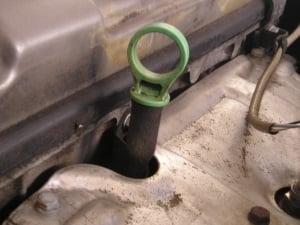Engine Lubricant - When is Synthetic Not Synthetic?
One of the dirty little secrets in the engine lubricant industry is that sometimes a synthetic oil isn't really synthetic. This is news to consumers...
Public trust in the automotive industry has been taking some giant hits recently, although the fact that gas prices are at their lowest marks in years does seem to blunt some of the potential consumer outrage. Still, that shouldn’t really matter, given that significant numbers of human lives have been irrepairably harmed.
The culprits are no small cookies, either, as missteps by icons of the industry made the headlines in the last month. Really, calling them “missteps” minimizes the transgressions. Calling them “criminal coverups” instead of car safety scandals is probably more appropriate.
Toyota is one of two automotive giants in trouble for not addressing safety problems that cost hundreds of lives.
Toyota was fined $1.2 billion by the U.S. government for two related problems that caused some of its vehicles to experience unexpected acceleration. The first problem was “floor mat entrapment”, where the floor mats might cause the gas pedal to become stuck through the pedal getting caught in the mat. The second problem was a sticky gas pedal problem that Toyota learned about from cars in Europe a year before they took any action in the United States.
The delay was a factor in determing the penalty for Toyota. There’s evidence they knew about the problems for a long time before they decided to do anything about them.
Even worse, the wrinkle in this long investigation turns out that Toyota had taken steps back in 2009 to hide the problem from investigators, right before coming out and assuring the public that they had figured out the problem and were taking steps to correct it.
2009 is relevant because that’s when news of the problem first broke for Toyota. So it’s taken about six years for regulators to finally nail Toyota with its penalty.
The issue with GM vehicles was an ignition switch that allowed the key to come loose, if it was hit a certain way. People knocking it with their knee would be one plausible way. When the key comes loose, the engine shuts off. Imagine driving down the highway at 70mph and your engine and electrical systems suddenly stop functioning. Now imagine that your air bag also won’t deploy if you hit someone while in this helpless driving state.
It was this issue that caused the deaths of 124 people, plus injuries to almost 300 more, in a ten year period. That's a huge human price.
The big problem here is that, according to overwhelming evidence, GM engineers knew from the start that this was a possible problem. There were internal discussions, plus emails from GM to its suppliers, all showing GM knew it could be an issue, but chose to do nothing about it.
General Motors settled with the Department of Justice on a penalty of $900 million. That’s $300 million less than the government socked Toyota for. The Toyota acceleration problem was linked to about 10-20 deaths. GM’s problem killed almost 200 people and injured almost 300 more. And while there’s evidence on both companies that they both knew about their problem but failed to act, the discussions on the GM are, arguably, more blatant with respect to its disregard for the safety of customers potentially affected by the problem.
But their settlement is a third lower than Toyota's.
Also, the $900 million penalty absolves General Motors of any criminal penalties. Government attorneys did not rule out criminal charges for the individual decision makers, but many in the industry think that’s ultimately unlikely. The victims still have the right to bring civil suits (and they are and they will). GM has already announced they are setting aside $575 million for compensation for these victims.
Both of these scandals bring to light the pitfalls of businesses ignoring small problems. Once all the victims have been compensated (which will probably end up being not enough), GM will have spent over $5 billion on the problem, when you tally up the penalties, compensation and expense to recall all those vehicle and fix the problem.
Had GM just addressed the problem at the right time, it would have cost less than $1 per vehicle. And 175 people would still be alive today.
You may be interested in these other posts:
One of the dirty little secrets in the engine lubricant industry is that sometimes a synthetic oil isn't really synthetic. This is news to consumers...

Changing your oil within the manufacturer recommendations is the single best thing you can do to maximize the working life of your car’s engine....
This is a question that under-girds a lot of the discussions about fuel additives. Do they really work? It's a fair question that's important to have...